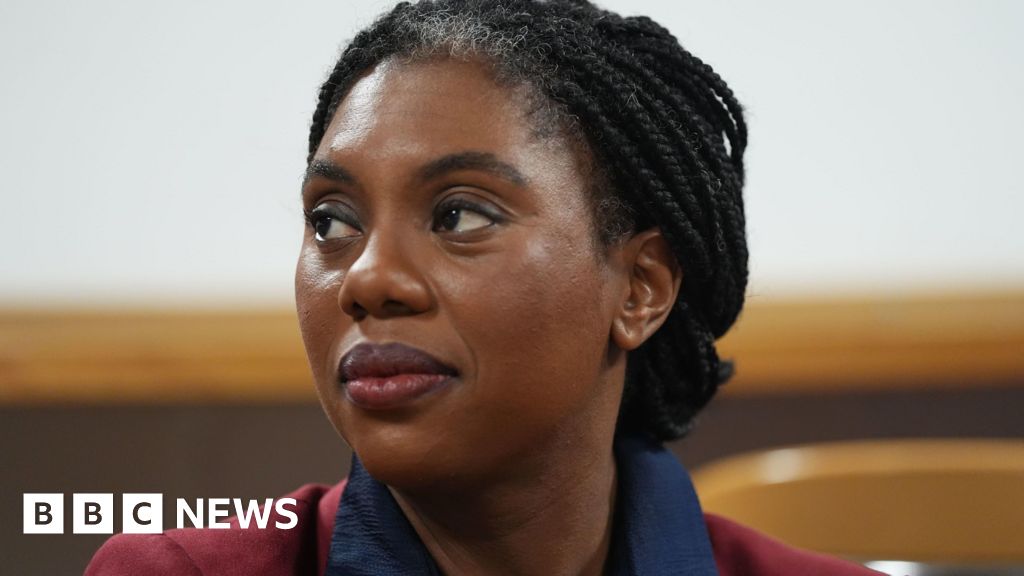ARTICLE AD BOX
Image source, Liam McBurney
Image caption,Sir Jeffrey Donaldson says his party has still to decide whether it will support the election of a new assembly speaker
The DUP has refused to confirm if it will support the election of a new Speaker when the Northern Ireland Assembly meets on Friday.
It is due to be the first order of business after the assembly election, which saw Sinn Féin win the most seats for the first time.
The assembly cannot function if a speaker is not elected.
Sinn Féin vice-president Michelle O'Neill accused DUP leader Sir Jeffrey Donaldson of holding society to ransom.
The election of a new Speaker needs cross-community support from both unionist and nationalist members.
A new Speaker would mean assembly business could take place for up to six months, even in the absence of a functioning executive.
The DUP has also said it will not nominate ministers to form a new executive until its concerns with the Northern Ireland Protocol are resolved.
It comes after the 5 May election cemented a majority for assembly members who accept the Northern Ireland Protocol, including the new largest party, nationalists Sinn Féin.
The protocol, part of the government's Brexit deal with the European Union, was designed to ensure free trade could continue across the Irish border by keeping Northern Ireland aligned with the bloc's single market for goods.
However, it has faced criticism from some unionists who argue it has undermined Northern Ireland's position in the UK by placing additional checks on some goods crossing the Irish Sea.
Sir Jeffrey told BBC News NI his party's assembly members (MLAs) would attend Stormont on Friday to sign the membership roll, but that a decision still had to be made about election a Speaker.
If the DUP is in the mood now to try and ramp up pressure and to try, I suppose, to strengthen the hand of the UK in Brussels negotiations in terms of the stalemate at Stormont, then blocking that process on Friday would certainly do that.
Because that then would block the shadow assembly, would block MLAs, if nothing else, creating the image of government not working here in Northern Ireland.
And while caretaker ministers will remain in place even without an assembly, there will be no opportunity to scrutinise ministers in the chamber or on committees.
If that process is blocked, then you're going to see things moved to a whole new level.
Because if the Stormont safety net all of a sudden isn't there to protect Stormont, then what else is?
Sir Jeffrey said he believed the pressure his party was bringing to bear on the issue of the protocol was beginning to have an impact.
"It's action I want to see and until I see that action and I'm satisfied that it deals with the issues that need to be dealt with in relation to the removal of that internal border within the United Kingdom, I can't make a decision [on returning to government] until I see what is going to happen here," he said.
"The government has to act. "
Sinn Féin deputy leader Michelle O'Neill accused the DUP of holding society to ransom
Speaking after meeting Irish Foreign Affairs Minister Simon Coveney, Ms O'Neill said Sir Jeffrey's comments were "not good enough" and accused the DUP of holding society to ransom.
"I'll make this call to him again today, join the rest of the parties who will be there on Friday, who will be there to elect a speaker, who will be there to nominate ministers for positions, who will be there to get down to business," she said.
Ms O'Neill added that the protocol was here to stay and accused the British government of "pandering to the DUP".
Naomi Long, leader of the Alliance Party, said any unilateral action by the British government would be "utterly reckless".
"We are very clear on what they [the government] should be doing - they should be engaging very intensively with the European Union and any change they make to the protocol needs to be mutually agreed by the UK and EU," Mrs Long said.
Before his meeting with Mr Coveney, Doug Beattie, leader of the Ulster Unionist Party (UUP), said the Irish foreign minister knew there was a "landing zone" for sorting out unionist concerns with the protocol.
"That landing site is no checks on goods from Great Britain to Northern Ireland," he said.
Mr Beattie said that despite these issues, it didn't give the DUP "the excuse to stay out of government".
Colin McGrath, who was elected for the Social Democratic and Labour Party (SDLP) in South Down, said the election of a Speaker was necessary to ensure ministers could be held to account.
If the move is blocked, he told BBC News NI's Talkback programme: "The DUP need to go off and consider can they legitimately use the word democratic at the start of their name."
'Worsen current arrangements'
The EU claimed the proposals would reduce paperwork and checks on goods entering NI from Great Britain.
But the government said they would "worsen the current trading arrangements".
The UK verdict was part of an escalating dispute which could soon see the government scrapping parts of the deal.
Image source, EPA
Image caption,Liz Truss says the EU's proposals, released last October, could lead to "everyday items disappearing from shelves"
Foreign Secretary Liz Truss said, in a statement released on Tuesday night, that her preference had always been for a "negotiated solution" but that she would not shy away from "taking action to stabilise the situation in Northern Ireland if solutions cannot be found".
The UK has demanded fundamental changes to the treaty.
It wants to remove checks entirely on goods destined to stay in Northern Ireland as well as overhaul VAT and governance arrangements.
There is scepticism in Brussels about whether the UK will really push ahead with ditching parts of the protocol.
Ms Truss is expected to meet EU chief negotiator Maroš Šefčovič in the coming days.

 2 years ago
48
2 years ago
48








 English (US) ·
English (US) ·